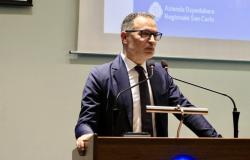Having emerged strengthened by the European elections, Giorgia Meloni welcomes the leaders of the world’s greats in the ultra-luxury resort of Borgo Egnazia, in the province of Brindisi, in Puglia, to present herself as the standard bearer of that Western world threatened by the global South and by illiberal and autocratic powers such as Russia , China, Iran and North Korea. But which Moscow and Beijing instead define as a union of emerging countries for a “new type of multilateral cooperation with a global orientation”.
The challenges that the leaders of the seven most influential economies in the world will have to face until June 15th are many: from the Russian war in Ukraine, to the bloody conflict between Hamas and Israel, passing through the fight against trafficking in human beings from Africa (horse of battle of the Italian Prime Minister) up to artificial intelligence and security in the Indo Pacific, threatened by China’s assertiveness. The summit therefore cannot ignore the international context, with the political turbulence in the United States, which is preparing for the presidential elections in November, and the advance of the far right in Europe as a result of the European elections.
Who participates in the Apulian summit
“I am proud that Italy is presenting itself at the G7 with the strongest government of all,” said Meloni last Sunday, celebrating the victory at the European elections in a Roman hotel. The prime minister presents herself on the international scene and claims her role at the helm of a summit that promises to be complicated from the start due to the challenges posed by the wars in Ukraine and the Middle East and by geopolitical tensions. As per practice, the presidency plays a fundamental role in defining the agenda and themes of the summit, which however risks being overshadowed by the internal problems of the seven leaders. If some are dealing with an electoral campaign and an expiring mandate, such as US President Joe Biden, British Prime Minister Rishi Sunak, Japanese leader Fumio Kishida and progressive Justin Trudeau, others have to manage the debacle suffered in the European elections, such as German Chancellor Olaf Scholz and French President Emmanuel Macron.
In addition to the six leaders, Meloni extended the invitation to a dozen heads of state and government, with whom he aspires to improve economic and political relations. The choice of guests is indicative. The Indian Narendra Modi, the Brazilian Luiz Inacio Lula da Silva, King Abdullah II of Jordan, the Turkish president Recep Tayyip Erdogan and that of the United Arab Emirates, Mohammed bin Zayed will also be fattening up in Borgo Egnazia. Among the latest to confirm his presence is the Argentine president Javier Milei. The most anticipated guest is once again Ukrainian President Volodymyr Zelensky, who could meet Pope Francis, in a bilateral meeting that has not yet been scheduled. Saudi Arabia is not included in the latest official list.
Russian funds for Kiev
During the three days, the seven leaders set themselves the ambitious goal of offering further support to Ukraine, not just military. The final declaration of the summit should come with a measure to hit Russia economically. The instrument identified is the use of extra profits from Russian assets frozen in Europe. From these, a loan would be allocated to Kiev, with a maximum amount estimated at 50 billion euros, which would be repaid from the profits generated by the approximately 300 billion dollars in financial assets that Moscow still holds in Western countries, mostly in Belgium.
There is an unknown. These assets are subject to the laws of the market and may therefore stop generating returns or may even generate so few that they are insufficient to cover the entire amount. The European Union, under pressure from the White House, could therefore play the role of guarantor to ensure that, in this case, the funds still reach Ukraine. At a military level, according to the draft circulated before the start of the summit, the G7 intends to give further support to Kiev, increasing “the production and deliveries” of weapons “to help Ukraine’s self-defense”, also in attempt to curb Russia’s nuclear threats, branded as “irresponsible”.
The new sanctions against Russian banks
The measures put in place to punish Moscow are multiple. The Borgo Egnazia summit could also decide to target Chinese banks which, bypassing sanctions, continue to do business with Russia. This could lead to the explicit request to China to stop supporting the Russian war in Ukraine. Kiev’s allies accuse Beijing of supplying Moscow with technologies and components – both present in weapons and necessary to build them – making it easier for the Kremlin to circumvent the economic sanctions launched by the G7 on many of these products. As emerged from several government and journalistic investigations, banned materials often arrive in Russia via third-party countries such as China and Turkey or networks of intermediaries.
And just on the eve of the summit, Biden wanted to send a further message to Russian President Vladimir Putin: all our weapons have emerged to suffocate the flow of money and weapons towards Moscow. Thus, the White House has expanded sanctions against Russia that affect more than 300 targets, including entities in Russia and in countries such as China, Turkey and the United Arab Emirates. These include the Moscow Stock Exchange and several foreign financial institutions, making billions of dollars worth of transactions more complicated.
China is the elephant in the room at the summit. Trade tensions between the G7 countries and the Asian giant will be the subject of the statement more broadly. The seven leaders are expected to say that China’s policies are “creating global spillovers, market distortions and harmful overcapacity in a range of sectors,” according to the G7 draft.
From the war in Gaza to the right to abortion
The bloody conflict in the Gaza Strip, which has caused over 37 thousand Palestinian deaths, is one of the central themes of the G7. The leaders of the Big Seven will call on Hamas to accept the ceasefire agreement outlined by US President Joe Biden while urging Israel to de-escalate a “full-scale military offensive” in Rafah. The agreement could include language urging such measures to be in line with interim guidance ordered by the International Court of Justice.
On the initiative of the Meloni government, the summit could not only deal with major international issues, but also touch on the delicate issue of human rights. Before the start of the summit, a press rumor had circulated – later denied by the Italian Presidency of the G7 – according to which in the latest draft of the G7 conclusions any reference to the right to abortion will be eliminated, especially the point in which the world’s great they underline the importance of guaranteeing “effective and safe access”. This point was included during the last G7 meeting in Hiroshima in Japan and France and Canada, in view of the summit in Puglia, had asked to strengthen the reference. However, according to Today sources, the term would have been replaced in the Italian version by a periphrasis capable of not altering the meaning of the speech.
But if the rumors are confirmed by the final note, the G7 will prove to be a useful platform for Meloni to push his political agenda and make it international, leading the world’s leaders to take a step back on human rights. But everything that will enter into the final document will be the result of a negotiation between the G7 members, who embrace different requests and visions.





